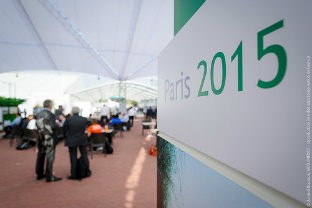Emissions control

The same week that President Obama at long last rejected the Keystone pipeline, officials in New York State started investigating whether Exxon Mobil had for decades lied to the public—and denied its own research—about the risks and causes of climate change. One can sense momentum shifting in the politics of climate change.
That momentum could get another boost in early December when world leaders gather outside Paris for a major United Nations conference—pared down after the devastating terrorist attacks of November 13—on climate change. The primary aim is to finalize a pact to reduce greenhouse gas emissions so as to limit global temperature rise to 2° C above preindustrial levels.
Many nations are still sketchy about their commitments and the extent to which their pledges are binding. Scientists disagree about what difference one conference can make. Business leaders argue that economic incentives are the best way forward.




